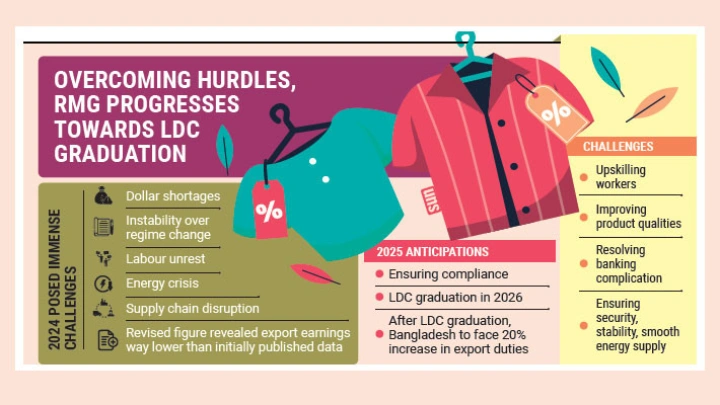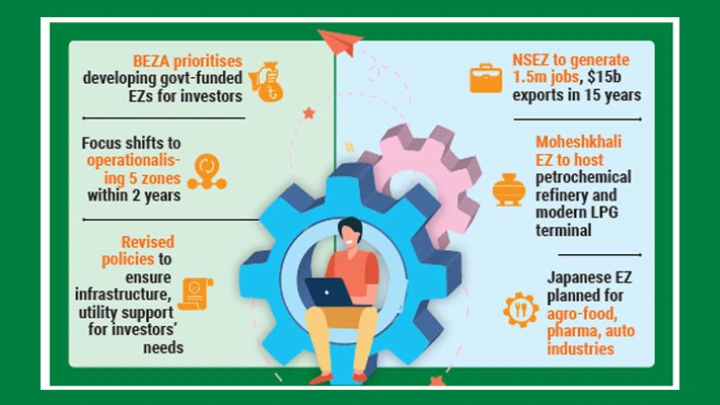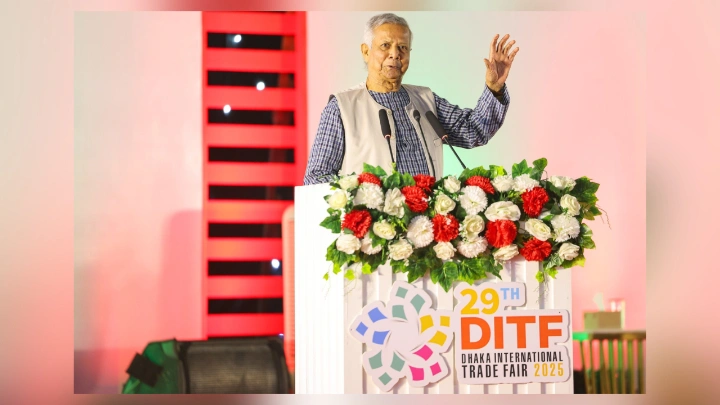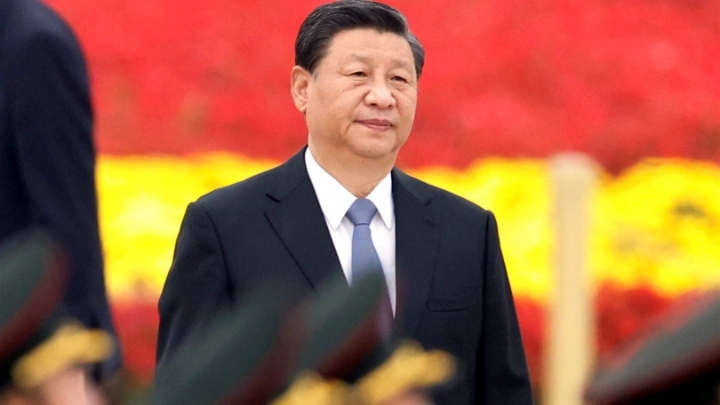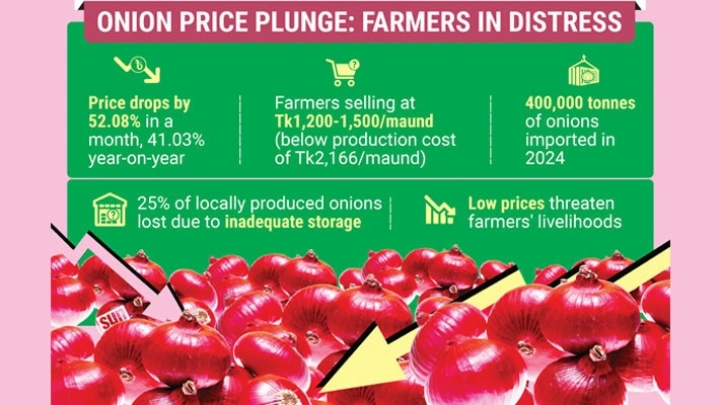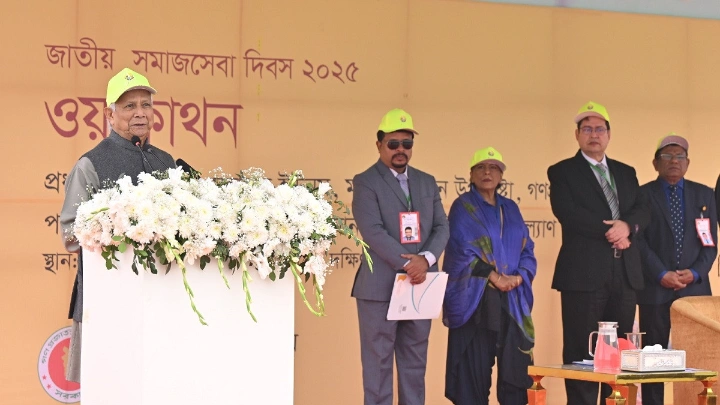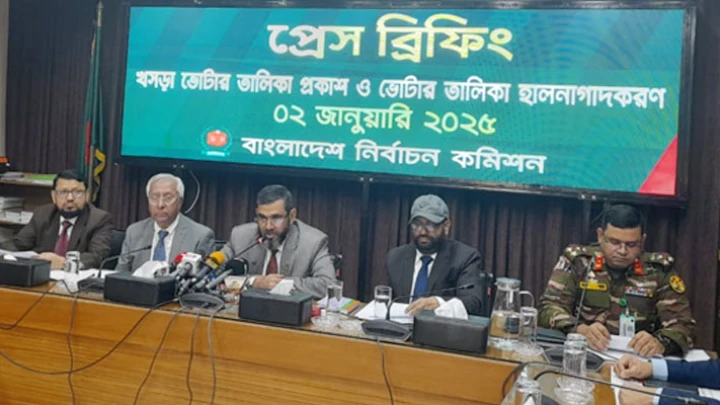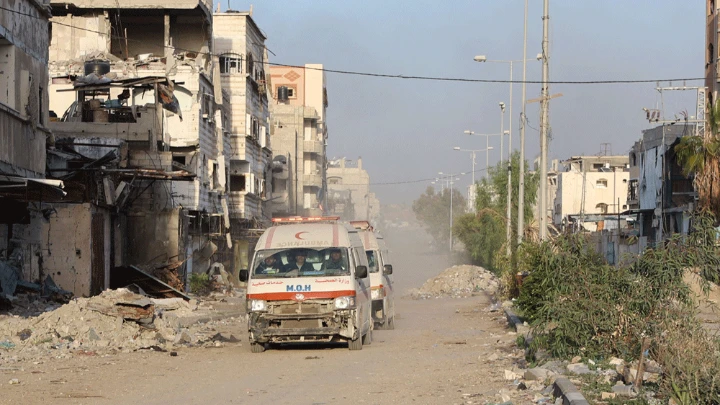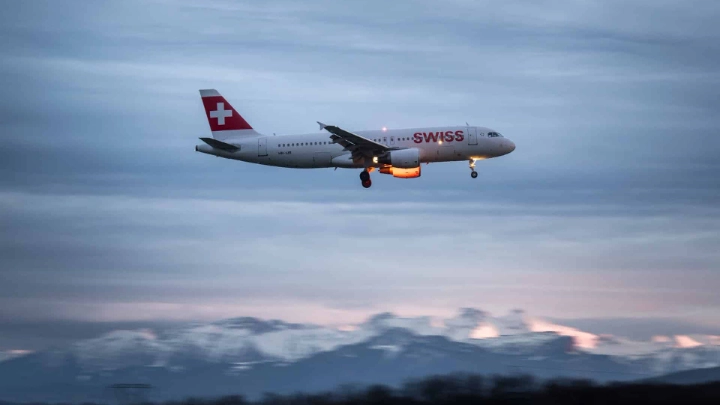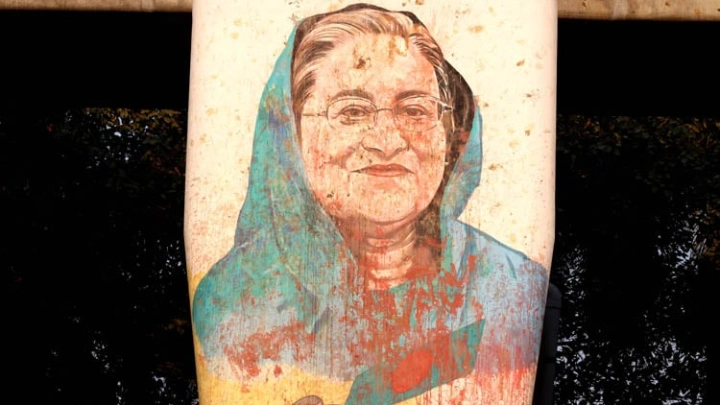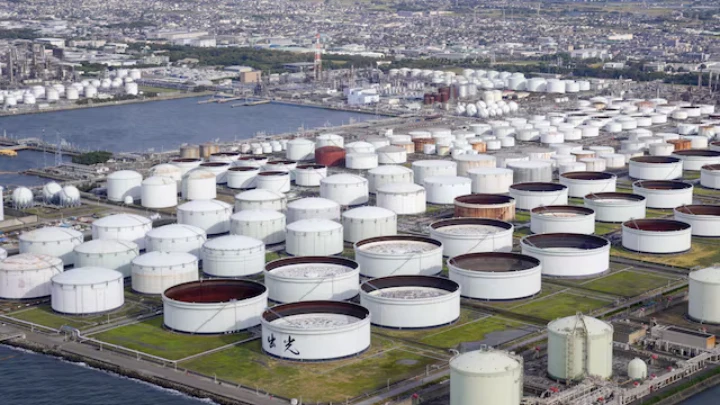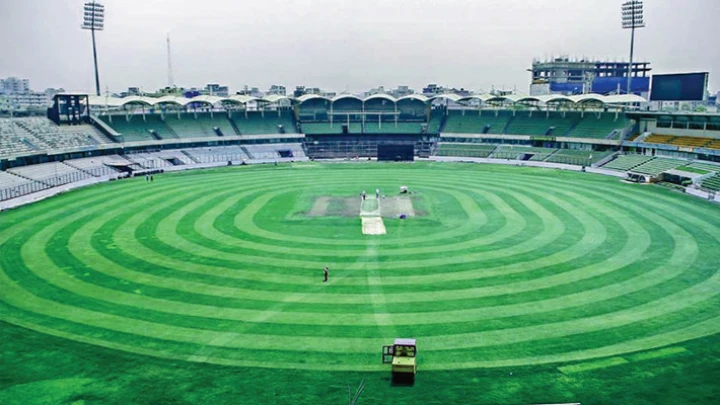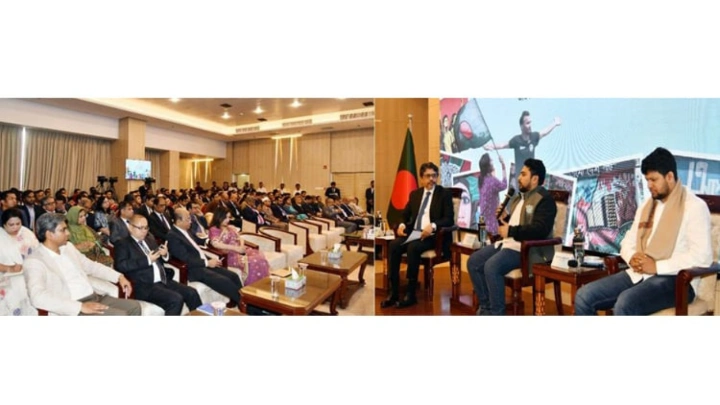Compliance issues key challenges for RMG industry in 2025
DailySun || Shining BD
The country’s readymade garments (RMG) entrepreneurs faced multiple challenges, including labour unrest, dollar shortages, energy crisis, and supply chain disruption, in 2024, and now they fear of compliance issues posing the biggest challenges in 2025 as the country is going to graduate from the least developed country (LDC) status in 2026.
Many RMG makers highlighted that international buyers’ demands related to ensuring compliance and sustainability of the industry are becoming stricter. All the brands are increasingly prioritising eco-friendly production systems and ethical labour practices, requiring significant investments from the manufacturers.
The exporters also said that political instability or unfavorable policy changes could further destabilise the sector in the coming days, while decreasing the high interest rates has become necessary to bring confidence in the business sector.
At the same time, they also expressed their optimism that the country’s economic situation will become stable in 2025, and the government will ensure security, minimise the cost of doing business, and provide proper policy to harness the opportunities arising in a stable economy.
To graduate from the LDC group, meeting the requirements in three criteria – per capita gross national income (GNI), human assets index (HAI) and economic vulnerability (EVI) index – are necessary. After fulfilling all the conditions in this regard, Bangladesh is expected to graduate in 2026.
In conversation with the Daily Sun, former Senior Vice President of Bangladesh Garment Manufacturers and Exporters Association (BGMEA) Abdullah Hil Rakib said, “In 2024, one of the major challenges we faced was restoring stability in the apparel sector.
There has been labour unrest in the sector since August 2024. The extent of the unrest has declined, but stability has not been fully restored yet. I expect stability will prevail in 2025.”
“Another major problem from which the industry suffered a lot in the outgoing year was lack of uninterrupted gas supply to the apparel and textile factories. So, in the coming years, the government should focus on ensuring energy security to sustain the business,” Rakib, also the managing director of Team Group, said.
He said, “If we can remove the uncertainties, establish rule of law, fix the labour issues and ensure the environment conducive to running business, there is a possibility of significant growth in Bangladesh's apparel export in 2025.”
Rakib further said the reasons behind the potential growth opportunities are many. One of these is that businesses are moving away from China. Another is that the developed countries have recovered from the economic shock caused by the COVID-19. There has been a positive turn in the USA since their election; stability is coming in the economic situation there. With this, a possibility of ending the Ukraine War has also arisen. All these will have a positive impact on countries across the world and on the global economy. So, the stakeholders must work together to harness this potential.
Discrepancies in export data, 60% reduction in export incentives
BGMEA’s former director Mohiuddin Rubel said, “One year ago, as we looked toward 2024, our garment exports were at a remarkable $47 billion. We were optimistic, setting our sights on reaching $50 billion in exports. However, discrepancies in export data led to substantial shifts in our calculations and projections. When we received the revised figures, we found that our garment exports from January to November 2024 had decreased to $37.71 billion, though this figure was still 6% higher than the revised numbers for 2023.
“As 2023 ended, we faced a climate filled with uncertainty. Challenges such as minimum wage protests and factory shutdowns in October 2023 loomed large. In response to these issues, we made the tough decision of raising the minimum wage by 56%, effective December 2023. While this was a difficult but necessary step for our industry, we held onto the hope that it would improve working conditions.
“We also hoped that, with buyers' support, increased productivity and enhanced value addition, we could navigate these turbulent waters. The beginning of 2024 brought its own challenges as we implemented the new wage structure. All this time, uncertainty surrounding the 12th national election prevailed.”
He further said, “February 2024 turned out to be particularly challenging. Just a month after the national elections, we encountered a drastic 60% reduction in export incentives. This sudden decision, made without adequate consultation or preparation, plunged our already struggling industry into a deeper crisis.
On top of these domestic issues, global conflicts, economic instability, and fluctuations in the oil market exerted a continuous pressure on buyers and consumers throughout 2024. Although inflation began to decline towards the end of the year, reduced purchasing power affected buyers' ability to purchase fashion items in the international marketplace.
Alongside wages, other production costs surged due to increasing prices for gas, electricity, and transportation, coupled with rising bank interest rates, which now hover between 14% and 15%. Many small and medium-sized enterprises (SMEs) faced significant losses, leading to closures across the industry throughout the year.
According to the Export Promotion Bureau (EPB), Bangladesh received $37.71 billion from January to November in 2024, marking a 6.23% growth. In comparison, export earnings from the sector were $32.64 billion during the corresponding period of 2023, EPB revised data showed.
2025 to pose immense challenges
Talking to the Daily Sun, Director of Evince Group Shah Rayeed Chowdhury said, “The key word for 2025 will be ‘optimisation’ rather than survival. I think ‘optimising’ is the right word – optimising in terms of technology, and new machinery. Not diversification, but specialization should be focused.
“Whatever we are doing now, we better improve on that. We should think about how to improve our efficiency, how to train our manpower to gain more skills for better performance. We should reduce our mistakes,” he highlighted.
Rayeed claimed that 2024 was not much challenging for him. “I don’t know what is waiting for me in 2025. It is supposed to be my last one decade in the industry. I am sure 2025 will be the most challenging year. So, we have to be prepared to overcome the challenges.”
More than 40 lakh workers are directly engaged in the sector where over 2,000 exporters lead the second largest industry in the globe.
Research and Policy Integration for Development (RAPID) Chairman Dr M A Razzaque said Bangladesh met all three criteria like gross national income (GNI), human assets index (HAI) and economic vulnerability index (EVI) to graduate from the LDC group. If everything goes well, Bangladesh will graduate on 24 November 2026.
“After LDC graduation, Bangladesh will face a 20% increase in export duties to markets like Japan and India, which requires immediate reforms in labour standards, environmental compliance and governance,” Dr Razzak also said.
Entrepreneurs want govt support to overcome challenges
“It has been one of the most difficult years in the history of our RMG sector. At the beginning of 2024, we faced a huge labour unrest over salary increases. Also, we had to face banking problems like, dollar shortages, liquidity crisis etc. We had to continuously face problems in opening LCs,” Stylish Garments Ltd Chairman M Salauddin Chowdhury said.
“Due to the continuous labour unrest, many factories have been shut down and many workers have lost their jobs. Energy crisis has been a huge hindrance for the development of the sector. After 5 August, security issues have been a major factor in the sector. Many factories have been closed and still many are considering closure. Though the new government has assured of some reduction in energy prices, we are still facing challenges in getting adequate energy supply,” he claimed.
“The businesses must get government support to survive. Enough security, adequate energy supply, full banking support, special assistance to the sick factories, exit policy are mandatory for the survival in 2025,” he also said.
“We need to ensure transparency and accountability from the government agencies related to the business activities. A one-stop service centre is essential. We still face lots of problems in dealing with the government authority for paying taxes or renewing licences,” he added.
Reaz Garments Ltd Director Salauddin said the RMG sector may face several challenges in 2025 due to evolving global and domestic dynamics. Firstly, increasing competition from emerging markets like Vietnam, Cambodia, and African countries may erode Bangladesh's market share. Secondly, compliance and sustainability demands from international buyers are becoming stricter. Brands are increasingly prioritising eco-friendly production and ethical labour practices, requiring significant investments from manufacturers.
“The shift towards automation and advanced manufacturing technologies globally might require reskilling the workforce in Bangladesh, posing a financial and operational challenge. Currency volatility and high inflation rates could affect the competitiveness of Bangladeshi garments in the international market,” Reaz, also an adviser to Textiles and Garments Merchandise blog, said.
He said, To navigate these challenges, the sector must focus on technological upgrades, skill development, enhancing sustainability, and diversifying export markets while maintaining compliance with global standards.”
Shining BD

